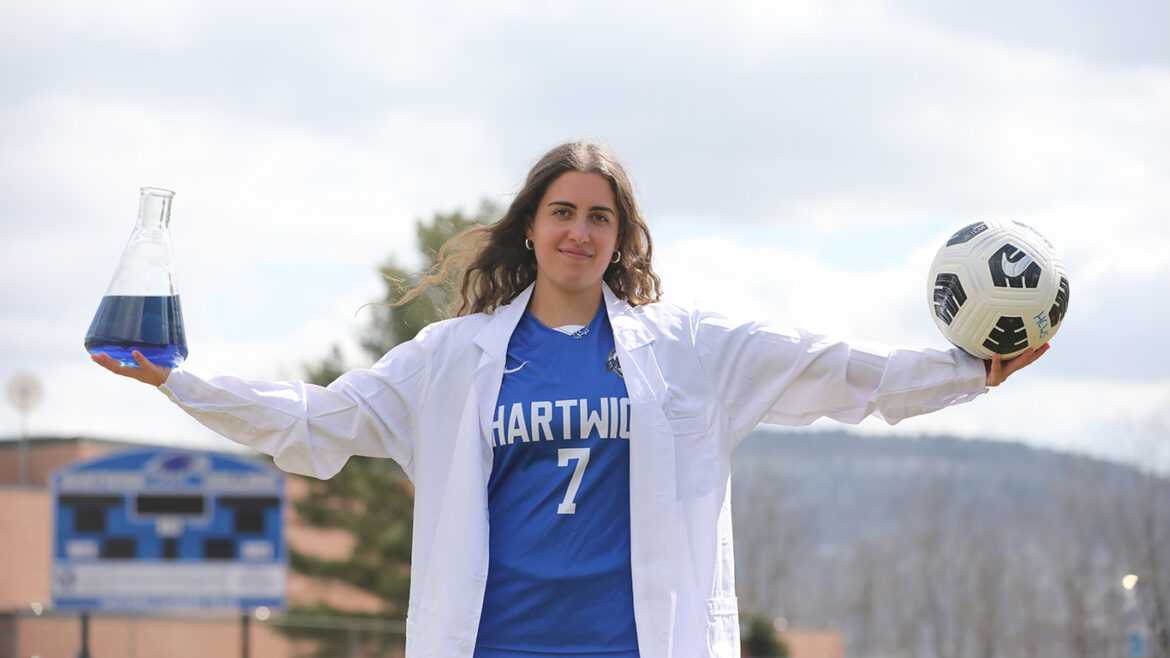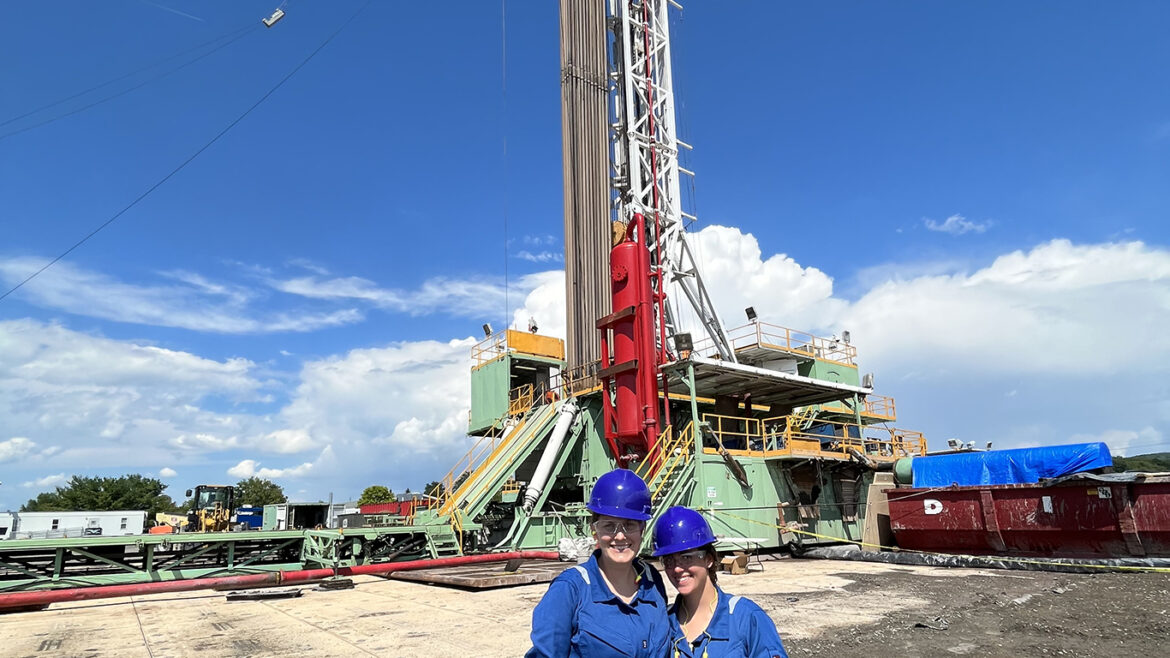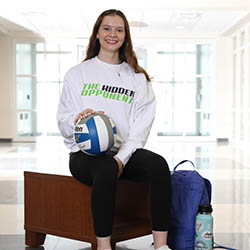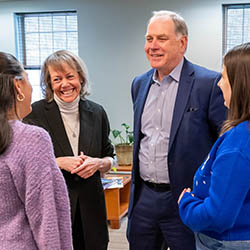Student-athlete Digs Deep for Groundbreaking Research
As Nicole Casab ’23 stood among a team of researchers drilling a nearly two-mile borehole into the earth on Cornell University’s campus, she allowed herself a moment of pride and awe.
by Michael Barone
As she evaluated transfer options 18 months earlier while completing her associate’s degree, she never imagined her choice would lead her to this moment: assisting in a geothermal research initiative designed to heat the entire 2,000-acre Ivy League campus without fossil fuels.
Known as the Earth Source Heat project, it’s a major part of Cornell’s goal to become carbon neutral by 2035. A two-well system will circulate water through the earth’s hot continental crust. If successful, it could revolutionize clean energy in cold-climate regions across the globe.
And here was Casab, a biology major and soccer player from Utica, N.Y., working among them as one of just two undergraduate researchers onsite, under the guidance of Stephanie Carr ’06, a Hartwick microbiology professor.
Yet, it’s not far from what she was promised when recruited by Head Coach Brian Knapp.
“When I’m recruiting, I can honestly say, ‘You’re going to get opportunities here that you won’t find at most other places,’” Knapp attested.
True, Hartwick had checked all the boxes for Casab, between its strong science programs and D-III soccer team, for which she immediately started. The junior midfielder had finished the year ranked fifth on the team in points while earning a Phillip S. Wilder, Jr. Award for academic distinction.
But neither she nor Coach Knapp imagined what would come next.
Carr was collaborating with Patrick Fulton, a Cornell geologist leading the university’s borehole project. The two had worked on previous ocean drilling projects. One day, they started talking.
“Cornell wanted to create a pilot well to test its porosity and confirm it was warm enough to allow for geothermal heating,” Carr explained. “I study deep, subsurface microbiology, and we recognized the potential to gather some samples during the borehole process.”
Carr and Fulton tacked a microbiology component onto the project: find and study the DNA of thermophiles — microbes that like heat — in the samples. They received a National Science Foundation grant, and suddenly, Carr needed a student to assist with the biological measurements.
Casab’s faculty advisor recommended her, and Carr quickly understood why.
“Nicole is a very good scientific writer,” Carr said. “Once I saw her hard work and genuine interest in the lab, I knew she was a great fit.”
Carr encouraged Casab to apply for a Freedman Award, which covered travel expenses and research supplies. That proved quite helpful because Casab would have to travel more than expected.
Though scheduled to take place earlier in the summer, various delays caused the Hartwick team’s portion to slide a few weeks — coinciding with the start of the soccer team’s preseason.
Knapp, however, didn’t hesitate to support his player.
“It was such a great opportunity,” Knapp said. “She was literally working on something that could one day improve our world — so if she had to miss a couple of sessions, that was OK with us.”
Casab worked out a schedule with Knapp and Carr to accomplish both goals. It meant that she’d have to drive back and forth a few times during the week of sampling, but she didn’t mind the three-hour roundtrip one bit.



